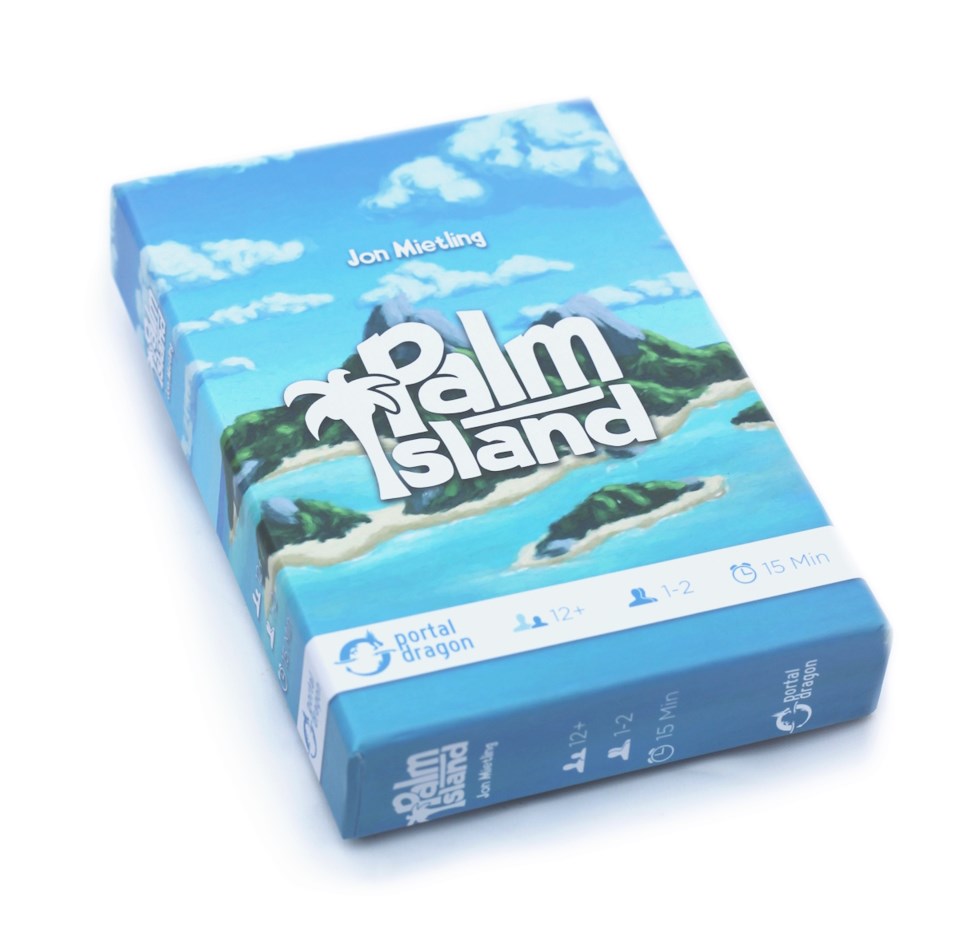If you are an avid gamer who likes to have a game handy at all times, Jon Mietling’s Palm Island might be just the ticket.
The game comes in a travel case that even has a lanyard ready for easy transport. The hard plastic case is about the size of a pack of cigarettes, so it will pack easy.
Palm Island is a good travel game because it is primarily a solo game, but can also be played by two. I can imagine how handy a solo game would have been in a near eight-hour flight delay at the Regina airport earlier this year.
The really neat aspect of Palm Island is that it doesn’t even require a table. It can basically be played holding the cards – yes it is a card game – in one hand.
So what exactly is Palm Island all about?
“Take control of a budding village that has just begun to take root on this new island. With your help, it will rise to greater strength and grow into a thriving island village. Will you invest in resources to increase population, establish markets to trade goods, or expand your village and build temples to gain victory points? It is all up to you as you shape your own island,” details the compact ruleset.
“Using a deck of just 17 cards, you will upgrade and transform each of your cards to gain more resources, abilities, and victory points. The game ends after eight rounds of play. Complete your objective or get high score to win.”
Each turn, you must do one of two things; either take an action on one of the top two cards of your deck, or discard the top card of your deck.
When taking an action, choose one of the three actions that may be present on the active area of the card. The three actions are store, rotate, or flip.
That is the core of the game, manipulating the card position of the small deck in your hand to facilitate other actions.
To use a card’s action, you must pay the cost. This is done using stored resources by rotating the stored resource(s) counter clockwise, making sure to retain their position in the deck.
At the end of each round, you retain any stored resources. At the end of eight rounds, the game ends and you must calculate your score.
“Once you have completed all eight rounds of play, add up all victory points which are marked with a star on the active area of each card in your deck. If you are playing solo or cooperative, compare your score with the chart to see how your village shapes up.
“When playing competitive against one or more opponents, the person with the highest score is the winner. In case of a tie, each player must add up their upgrades and the player with the most upgrades wins. If there is still a tie, the player with the most stored resources wins.”
Since this game is rather unique in its play, there are several online videos to help get the hang of things.
Check this one out if you like solo games, and ones that are portable at; www.portaldragon.com



